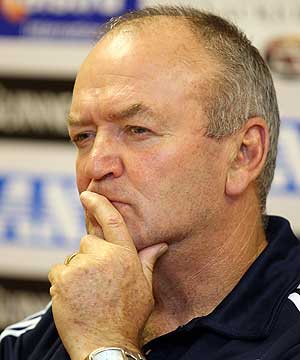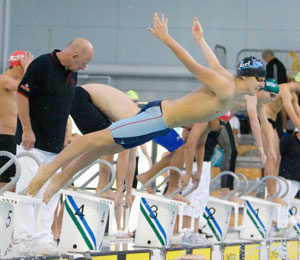Professional Sports Coach
Tasks & duties

Professional sports coaches may do some or all of the following:
-
teach the rules and demonstrate the skills of a sport
-
organise and control practise sessions
-
manage coaching staff such as the assistant coach
-
plan fitness programmes
-
ensure sports players use appropriate training and playing equipment
-
work out the tactics and psychology of the game
-
study the skills of players' opponents
-
organise courses to help improve players' skills
-
select players for teams
-
seek out and encourage talented players
Specialisations
Professional sports coaches usually specialise in coaching a particular sport such as rugby, cricket, tennis, swimming, basketball, golf or netball.
Skills & knowledge

Professional sports coaches need to have:
-
knowledge of the skills, rules, techniques and psychology of the game or sport they coach
-
training and teaching skills
-
knowledge of fitness techniques and diet
-
the ability to use and care for sports equipment
-
knowledge of first aid
-
planning skills
-
the ability to demonstrate their sport
-
skill in evaluating the sporting ability of individual players and teams
-
management skills
-
the ability to communicate well with sports players and other sports officials
Entry requirements
To become a professional sports coach you need to have a coaching qualification. These are offered through Coaching New Zealand and regional sports trusts. You must also complete training through associations that deal with the coaching methods of specific sports.
Secondary education
A minimum of three years of secondary education is preferred to become a professional sports coach.
Tertiary education
Qualifications in coaching are needed to become a professional sports coach. These are offered by Coaching New Zealand and regional sports trusts. Training must also be gained through associations that deal with the coaching methods of specific sports.
Training on the job
Professional sports coaches gain skills on the job, and can do training to obtain further qualifications and to keep up to date.
For more information on training contact the Sport, Fitness and Recreation Industry Training Organisation (SFRITO).
Useful experience
Useful experience for professional sports coaches includes playing sport, work as an assistant coach, and teaching or physical education instruction.
Related courses
Human Movement and Sports Science
Sport and Recreation Activities
Sports Coaching, Playing, Officiating and Instructing
For more information, please refer to Career Services.
Document Actions
